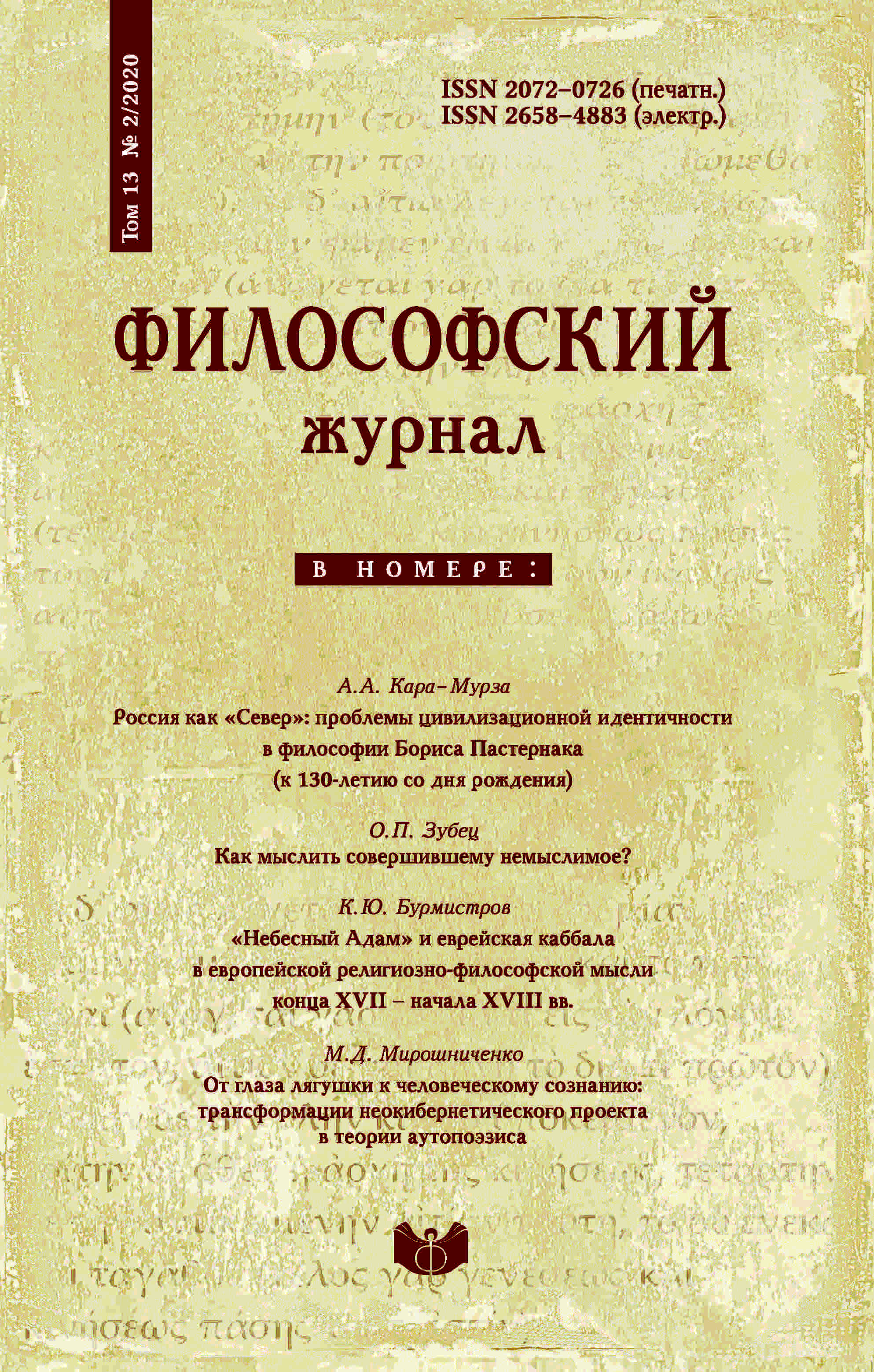A moral problem for theodicies
DOI:
https://doi.org/10.21146/2072-0726-2020-13-2-35-48Keywords:
Emmanuel Levinas, “Useless suffering”, theodicy, evil, suffering, moral criterion for theodicyAbstract
One of the central problems in both contemporary philosophy of religion and ethics concerns the offensiveness of any theodicy, explanation and justification of suffering in the light of the tragic events in the history of the 20th century (to mention some of them, the two World Wars, the genocides at Auschwitz, in Cambodia, Rwanda). The author considers an essay by Emmanuel Levinas called “Useless suffering” in which Levinas presents one of the first attempts to construct a moral critique of theodicy. In order to reconstruct Levinas’ argument, the author introduces two distinctions: a) theodicy of goodness and theodicy of justice, b) theoretical and existential practices of theodicy. Levinas proposes a moral critique of the theodicy of just reward. He claims that it is immoral to justify suffering by a simple calculation of offences and punishments. He thus undermines any attempt to construct such a theodicy. However, theodicy of goodness remains possible for Levinas, as it may express “non-indifference” to the other, openness to her suffering, readiness to show compassion and to provide help. The author claims that any existential theodicy presupposes a theoretical one, and any moral critique must target the theoretical theodicy. In the final part of the paper, the author establishes a stronger and a weaker version of possible moral criterion for theodicy and argues that while the stronger version might prohibit any intellectual practice, the weaker one is applicable to both theoretical and existential theodicies and defenсes.






